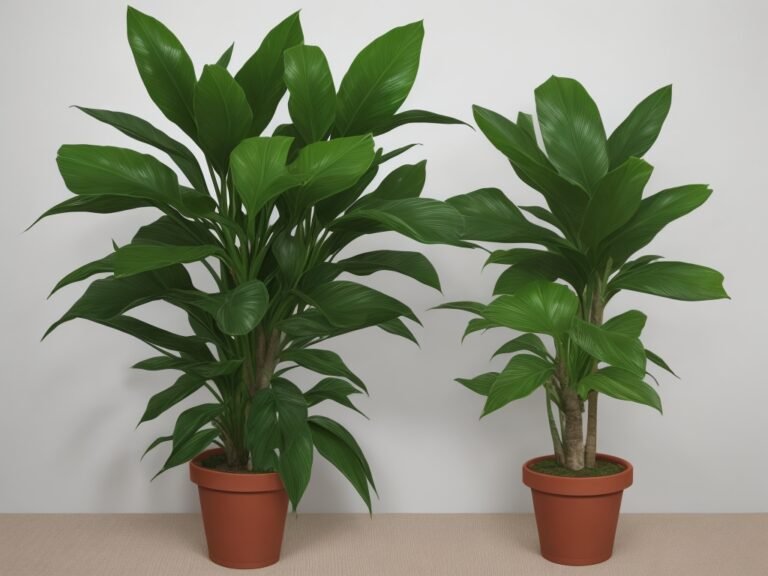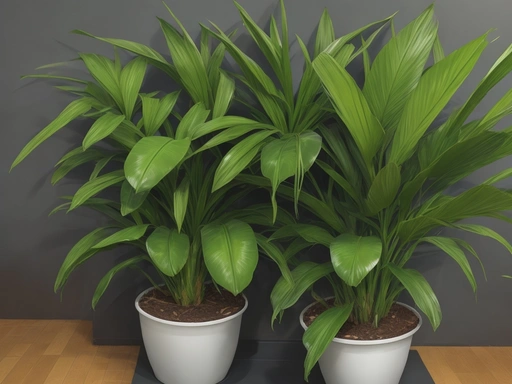Dracaena Reflexa Variegata: Unique Foliage Patterns – Nature’s Artwork
Key Takeaways:
- Dracaena Reflexa Variegata is a plant with unique foliage patterns that can add a touch of elegance to any space.
- The variegated leaves of Dracaena Reflexa Variegata come in various shades of green with white or yellow stripes, creating a visually appealing contrast.
- This plant is relatively low-maintenance and can thrive in both indoor and outdoor environments.
- Dracaena Reflexa Variegata can purify the air by removing toxins and improving overall air quality in your home or office.
Are you tired of the same old boring houseplants? Looking to add some uniqueness and flair to your indoor space?
Well, look no further than Dracaena Reflexa Variegata! With its stunning variegated foliage patterns, this plant is sure to turn heads and add an eye-catching touch to any room or garden.
But it’s not just about looks – Dracaena Reflexa Variegata is also a joy to care for, as long as you know the ropes. In this article, I will guide you through everything you need to know about caring for this beautiful plant, solve common issues that may arise, and give you some creative ideas for decorating with Dracaena Reflexa Variegata.
Get ready to transform your space into a botanical wonderland!
| Foliage Pattern | Description |
|---|---|
| Yellow Stripes | Leaves have yellow stripes running along the edges. |
| White Edges | Leaves have white edges, creating a striking contrast. |
| Green Spots | Leaves have random green spots scattered across the surface. |
| Twisted Leaves | Leaves are twisted or contorted, giving a unique appearance. |
| Variegated Leaves | Leaves have a mix of yellow, white, and green patches. |
How to Care for Dracaena Reflexa Variegata
To care for Dracaena Reflexa Variegata, ensure proper lighting and temperature, water regularly but avoid overwatering, use well-draining soil and fertilizer, and prune as needed.
Light and Temperature Requirements
Dracaena Reflexa Variegata thrives in bright, indirect light, making it ideal for indoor spaces. Place it near a window with filtered light to avoid direct sunlight, which can scorch its leaves.
As for temperature, this plant prefers a warm environment, ideally between 65-85°F (18-29°C).
Avoid exposing it to drafts or extreme temperature fluctuations.
Watering and Humidity Needs
Water your Dracaena Reflexa Variegata when the top inch of soil is dry. Be sure not to overwater, as this can lead to root rot.
Mist the leaves occasionally to provide some humidity, but avoid excessive moisture.
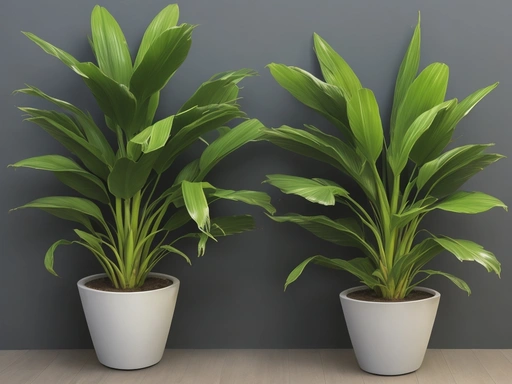
Soil and Fertilizer Recommendations
For optimal growth, Dracaena Reflexa Variegata requires well-draining soil.
A mixture of equal parts potting soil, perlite, and peat moss works well.
When it comes to fertilizing, use a balanced liquid fertilizer diluted to half strength once a month during the growing season (spring and summer).
Avoid over-fertilizing to prevent leaf burn.
Regularly check soil moisture levels before watering and adjust accordingly.
Pruning and Propagation Tips
To keep your Dracaena Reflexa Variegata healthy, it’s important to prune it regularly.
Remove any dead, damaged, or yellowing leaves to promote new growth.
You can also trim back overgrown branches to maintain its shape.
When propagating, take stem cuttings and place them in water or soil.
Make sure to keep the cuttings in a warm and humid environment until they develop roots.
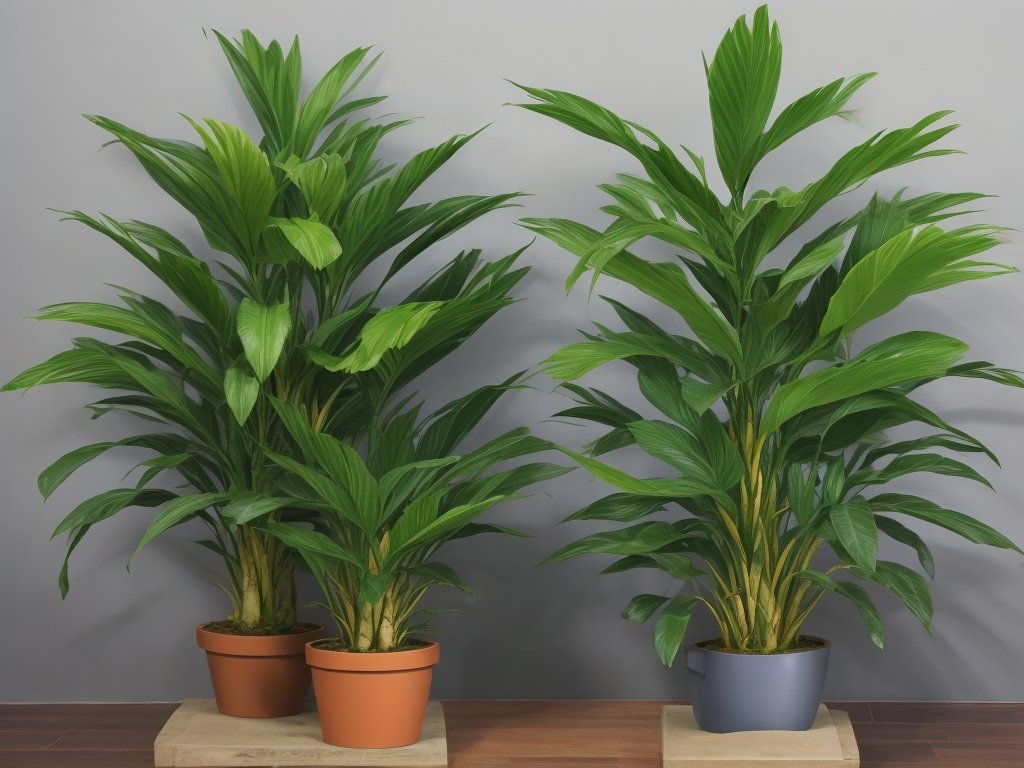
Common Issues with Dracaena Reflexa Variegata and How to Solve Them
Leaf browning or yellowing, root rot and overwatering, and pest infestations are common issues with Dracaena Reflexa Variegata.
There are effective ways to solve these problems and keep your plant healthy.
Leaf Browning or Yellowing
Leaf browning or yellowing in Dracaena Reflexa Variegata can be caused by various factors, including insufficient light, overwatering, or improper watering practices.
To address this issue, make sure the plant receives adequate indirect sunlight, water it only when the top inch of soil is dry, and ensure proper drainage.
Avoid overwatering and underwatering, as both can lead to leaf discoloration.
Additionally, inspect the leaves for any signs of pests or disease, and take appropriate action if necessary.
Root Rot and Overwatering
Root rot is a common issue caused by overwatering Dracaena Reflexa Variegata.
To prevent this, make sure to water the plant only when the top inch of soil is dry.
Ensure good drainage by using a well-draining potting mix and pots with drainage holes.
Avoid letting the plant sit in standing water.
If root rot occurs, remove affected roots, allow the plant to dry out, and adjust your watering routine.
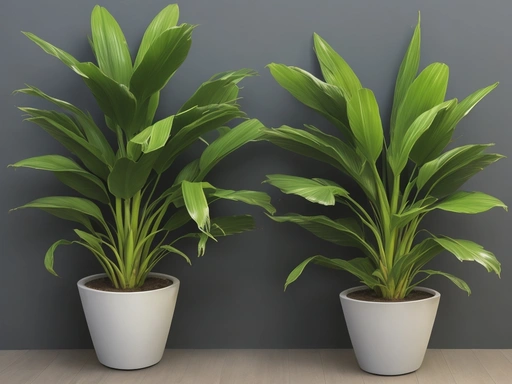
Pest Infestations and Control Methods
One common issue with Dracaena Reflexa Variegata is pest infestations. The most common pests that can affect this plant are mealybugs and spider mites.
To control these pests, you can start by wiping the leaves with a damp cloth to remove any visible pests.
After that, you can use a mild insecticidal soap or neem oil spray to treat the plant thoroughly. It’s important to repeat the treatment every few weeks to ensure all pests are eliminated.
Regularly inspecting your plant for signs of pests and taking immediate action can help keep your Dracaena Reflexa Variegata healthy and pest-free.
Decorating with Dracaena Reflexa Variegata
Decorate your space with the beautiful and unique foliage of Dracaena Reflexa Variegata.
Indoor and Outdoor Placement Ideas
Indoors, place your Dracaena Reflexa Variegata in a spot with bright, indirect light.
Avoid direct sunlight which can scorch the leaves.
Outdoors, choose a location with partial shade to protect the plant from harsh sunlight.
Consider using the plant as a centerpiece on a coffee table or as a statement plant in a corner.
It also looks great as part of a stylish plant shelf or hanging in a macrame holder.
Lastly, remember to rotate the plant every few weeks to ensure all sides receive equal light.
Companion Plants for Dracaena Reflexa Variegata
Dracaena Reflexa Variegata looks great with a variety of companion plants. Some options include:
- Pothos (Epipremnum aureum: The trailing vines and variegated leaves of pothos complement the foliage of Dracaena Reflexa Variegata.
- Spider Plant (Chlorophytum comosum: The arching leaves and white stripes of spider plants add a nice contrast to the Dracaena’s upright growth.
- Peace Lily (Spathiphyllum: The lush, dark green leaves and white flowers of peace lilies provide a beautiful contrast and balance to the Dracaena’s variegation.
Styling Tips and Design Inspiration
Styling Tips:
- Use the Dracaena Reflexa Variegata as a focal point in your space, either as a standalone plant or grouped with other plants.
- Pair it with neutral-colored pots or planters to let the vibrant foliage stand out.
- Experiment with different heights and textures by mixing the Dracaena Reflexa Variegata with plants of varying sizes and leaf shapes.
- Create a tropical vibe by placing the plant in a rattan or woven basket.
- Consider placing the Dracaena Reflexa Variegata in a hanging planter to add visual interest and save floor space.
Design Inspiration:
- In a minimalist or modern space, the striking foliage of the Dracaena Reflexa Variegata can be the perfect statement piece.
- In a bohemian or eclectic setting, combine the plant with other lush and vibrant plants for a tropical oasis feel.
- Use the plant in an outdoor setting, such as a patio or balcony, to add a touch of greenery and natural beauty.
- Create a tropical-themed corner in your home by pairing the Dracaena Reflexa Variegata with decorative items like seashells, tropical prints, and bamboo accents.
- For a contemporary look, place the plant in a sleek and stylish planter and pair it with metallic accents like copper or brass.
Frequently Asked Questions
Is Dracaena Reflexa Variegata toxic to pets?
Yes, Dracaena Reflexa Variegata is toxic to pets, including cats and dogs.
If ingested, it can cause symptoms like vomiting, drooling, and lack of appetite.
It’s best to keep this plant out of reach of your furry friends to ensure their safety.
How fast does Dracaena Reflexa Variegata grow?
Dracaena Reflexa Variegata is a slow-growing plant, typically growing around 4 to 6 inches per year.
Its growth rate can be influenced by factors such as lighting, temperature, and care.
It’s important to be patient and give it the proper conditions to thrive.
Can Dracaena Reflexa Variegata survive in low light conditions?
Dracaena Reflexa Variegata can tolerate low light conditions, but it prefers bright, indirect light. If placed in low light, its growth may slow down, and the foliage may lose some of its variegation.
To maintain a healthy plant, consider supplementing with artificial grow lights or placing it near a bright window.
Final Verdict
Dracaena Reflexa Variegata, with its unique foliage patterns and easy care requirements, is the perfect addition to any plant lover’s collection.
By providing the right amount of light and temperature, watering and fertilizing appropriately, and implementing proper pruning techniques, you can ensure the health and longevity of this stunning plant.
Additionally, being proactive in identifying and addressing common issues, such as leaf browning or pest infestations, will help maintain its beauty.
With its versatility in both indoor and outdoor settings, Dracaena Reflexa Variegata offers endless possibilities for decorating and styling, making it a true showstopper.
So go ahead and introduce this remarkable plant into your space, and enjoy the beauty and tranquility it brings.


